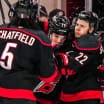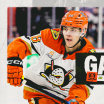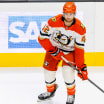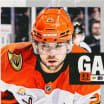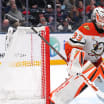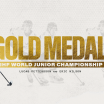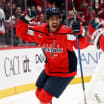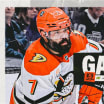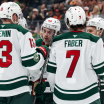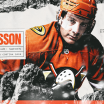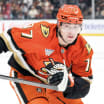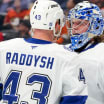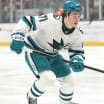Ducks Executive Vice President/General Manager Bob Murray today spoke with members of the media about various topics, including his team's 2019-20 season, the upcoming NHL Draft Lottery, what he's hearing regarding safety protocols and timelines moving forward, and more.
How have you conducted business over the past three months?
It's been pretty busy for now. We've done some things more thoroughly. It's given us time to do things more thoroughly than some things in the past, which has been good. Exit interviews were really good. More in depth than ever. The players were very willing to talk, which is good. These WebEx/Zoom calls are a little different when you meet draft picks. I'm not so sure about that, but we got it done. It was interesting. You get off a bunch of [calls] and you're saying 'Geez, that's a guy I'd like to sit and talk to and see in person.' It is what it is. It's the same for everybody, pretty much.
Ducks GM Murray Recaps Season, Discusses NHL Draft Lottery and More
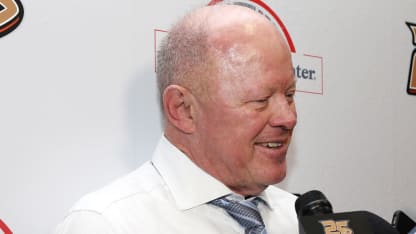
© Debora Robinson/Getty Images
We had another video call this morning with [Dave Nonis, David McNab and Martin Madden.] We had to get the draft list done. We waited and procrastinated a little bit, but Martin decided to stick with the normal timeline as before. We just finished that up the other day. It's been busy, but good. It's given us time to look into a few things, which has been healthy.
What are the challenges of using programs like Zoom instead of having your guys together in the same room?
It's different. Some teams are going to adapt. It's obviously cheaper than the travel we usually do. With my own guys, you still want to meet in person and spend some time together. In a group setting, it's been good. The only difficult part has been with the draft picks. I'm not complaining about it. I'm just saying it's been difficult because it's much easier in person to get a feel for their personality. On Zoom or WebEx, it's tougher to get them to smile. They all come in and have been told by their agents what to say. You have to try to get them to talk to get a feel for them. That's the only thing that's more difficult. With my group, it's quite anxious when a bunch of us will get together, but that time will come.
You need the [personal connections]. I haven't gone in depth with the coaching staff yet. That's next week. Hopefully by then we can get them all in a room together. That could be quite necessary going forward, but we'll do what we have to do. We have them working on some things now. That's definitely an area, with the coaches. [There are] areas of our team play that I want to go over with our team staff. I think we all need to be in the same room to go over that. That would be tough to do on this sort of thing. Certain things are starting to open up a bit, so we should be able to get that in at some point.
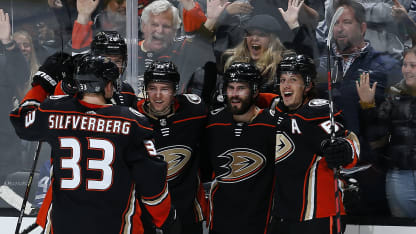
© Debora Robinson/Getty Images
What did you like/dislike about your club's 2019-20 season?
The record wasn't where I wanted it to be, or where anyone wanted it to be. The question is why? Again, I'm encouraged. There were some stretches of very good hockey played by this group. Definite steps in the right direction of playing faster, quicker and doing some things the proper way. Far too inconsistent. We'd play good games against good teams and show we could play, and then we failed to show up. Why? Special teams, a major concern. If you put us in the middle of the pack on special teams, we could be one of the teams playing right now. We're so far down the totem pole, and that's inexcusable. That's on the coaches, players and everybody. That has to be fixed. Certain things are going to change. I'm going to be pushing very hard. The inconsistencies cannot be allowed to happen with the way they were.
In hindsight, because of the year before and what happened at the end, I kind of backed off and gave everyone space. I didn't feel I could be around as much. In hindsight, that's a mistake. An error in judgement. My people argue with me on that. That won't happen again. Everybody talking about the young guys, it just led players, at times, to say it's just a rebuilding year, and that it doesn't matter. Up and down the lineup, some of the kids were allowed to get away with murder this year. That's over. Accountability in this group is going to change. I've said that a couple times. I'm hellbent on that happening going forward. The coaches are going to hear that loud and clear. They already have. That goes right from the lowest ice time to the most ice time and the most veteran guys to the younger guys. That leads to the inconsistencies. Some of that was, 'Okay we have some of the young guys. We're going to be young.'
The other thing that didn't work properly, and again, our depth coming up with all our young guys. We had injuries again, but that was better. That was an improvement. Man-games [lost due to injuries] were down. That was better. It was always our kids who were our best players when they were coming up, but then you have too many kids. You can't play with all kids in this league. The league is too good. For a stretch there, we had far too many kids in the lineup. Now it's going to be difficult with budgets and things. Who knows what's going to happen with the American Hockey League. Those guys are a year older, so that should help. That was a little bit of a problem. Enough of the excuses with that. We have to fix that. It was enough of some really good hockey played that I expect a big step forward next year.
How much did the cancellation of the remainder of the AHL season affect the organization?
That was a big disappointment for me because I'm a big believer in these guys playing playoff games as a pro. We had that set up fairly well. If everyone would've stayed healthy and we get the guys down who could've gone down at the end of the year, that would've been a really good team. That would've been very healthy for them. For example, Troy Terry, we did what we did because I wanted him to go down there and lead them into the playoffs, which he was doing. But he didn't play in the playoffs the year before because he got hurt. He didn't play down there. He was out. Regardless of the success some of these guys have had in the past at college or whatever stage, it's still not professional playoff hockey. That's a disappointment, but nobody else got to play them either. It is what it is. On the flip side, right now we're on all of our players right now. This is the summer and there aren't too many injuries. Everybody is cleared. Hampus [Lindholm], Cam [Fowler], they're all cleared. Couple nagging things guys are getting worked on, so this is an opportunity to get those fixed.
It's going to be a long summer, so let's take advantage of it. That's how we're addressing this. Let's take advantage of this. I'm pushing. Dave Nonis, Todd Marchant, we're pushing our strength and conditioning staff. Push these guys now. Let's get a good summer in. With some of them, we've seen some deficiencies in their body makeup. Let's address those right now. Now is the opportunity. There's good and the bad. The [AHL] playoffs, I was counting on those, but nobody else got them.
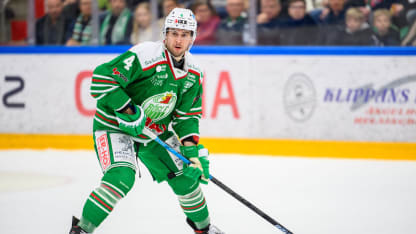
What does Kodie Curran bring to the organization's defense?
We felt another one of our issues was that our defense was too young. And with young forwards, it really hurt us. We've kind of shored up our depth on defense. It's going to take a lot of defensemen to get through next year. Curran is a late bloomer. We've known about him for years and his improvement over the last couple of years in the Swedish Hockey League. You saw the numbers and awards he won. We're quite excited about that. I expect some really good competition on defense [next] year. We should be deep enough. I think the schedule is going to be fairly tough next year.
How did your interest in Curran develop?
[Head European Scout] Jan-Åke Danielson mentioned him last year. He thought he was coming on with Rogle at the end of last year. This year, the notes were regular once a month. [Laughs]. 'Bob, we've got to sign this guy. Bob, we've got to sign this guy.' When I was over there one time, I went and saw him with Jan-Åke. I said 'Wow.' He's a late bloomer who figured it out. I talked to him yesterday morning. He had some issues with a Russian team and a Swedish team with his rights. It took him a while to get this done. I give him credit because he bought himself out of a little bit of trouble with the Russian team. He wanted to be here. He's learned how to train. Some of us take longer than others. He's figured it out. He gives us more options on the backend. For a couple years, we haven't been as good as we usually are, but we're going to fix that.
Jan-Åke saw it the best with him playing in the other European leagues. Coming to the SHL and watching him the year before, the step-by-step improvement in his game. One game I was at last year he was dominant. I thought 'Oh wow, what the hell has he been doing his whole life?' It'll be interesting back here. He's a Calgary boy. He won't have a problem with the ice size. It took Jani Hakanpaa a little while to figure out our ice. Kodie shouldn't have that problem. I'm enthused about the depth on our defense. It's going to be good competition. The young guys aren't out of it. They're going to have to earn their stripes just like everybody else around here.
You haven't had a top-five draft pick in more than a decade. How does that change your preparation? What kind of impact can that have on your team?
We're quite anxious for it. I hope we don't drop down any, but that seems to be the norm the last few years. Something always drops you down a couple, or one or whatever. But you can win. We're going to get a good player this year. We're positive of that. We have three picks in the top-36 as of right now. We just finished our draft meetings and I've seen pretty much everybody they're talking about. I'm looking forward to this year's draft. We'll add to our young depth that's starting to grow.
Where did you stand on the draft lottery procedure and the 24-team return-to-play plan?
I don't envy the job that Gary [Bettman] and Bill [Daly] had to do. There was no perfect way, but other than that, my mom always told me if you don't have much good to say about something, don't say anything. They did the best they could. Bill has been excellent with me. He helped me a lot with the Kodie Curran thing. He's helped me with some other things we're planning going forward that we need to do as an organization. It's a long time between March 11 and whatever the date of training camp will be, like November 1. Let's use that as a hypothetical because we don't have dates yet. It's a long time. I have lots of ideas and Bill has been a great sounding board for those.
What kind of conversations have you had regarding workouts and any sort of potential camp details for the future?
When Brian Burke and I came here in 2005-06, we had just gone through that lockout. That experience is valuable right now because you know certain types of players are going to struggle going forward unless you do something. There's opportunity for younger players, but the veterans have to understand. The proof was in the pudding back in 05-06 because we didn't quite know everybody, but some guys struggled big time. We have to try to ensure that doesn't happen. That experience is invaluable to us right now. You have to go through all the protocols. We're actively following what the league is mandating. We're seeing what the cost will be to have a hygiene officer and the testing you would need to do. Right now there aren't many guys in town. Some guys in town will probably want to work out. Hopefully we'll see some sort of schedule in the next couple weeks with a timeframe between events. That's what you need to plan. I'm going to plan moving backwards from the Stanley Cup Final. I've talked to Blakey [Kings Vice President and General Manager Rob Blake] and Dougie [Sharks General Manager Doug Wilson]. We've had the same ideas. As we go along, we'll let you know what we're doing. We have to get through Phase 2 first before we worry about Phase 3 and how we deal with the timeframes. There are lots of ideas. The players are going to have to buy into some things. I'm going to be very disappointed if some don't. They're going to have to buy in.
What is the status of the annual rookie tournament help in September?
There won't be time for that. It's out. We're learning things every day. We just had a call this morning, and there's a little bit of news coming out of junior hockey and when they're going to start. The USHL announced something yesterday or the day before. All these things affect what you can do by certain dates. If the CHL has started and we're going into training camp, we're not going to bring certain kids out of training camp. We don't know what's going on with college hockey. That has totally different vibrations across the country with what certain universities are going to do and what certain universities aren't going to do.
Is Europe an area of increased focus these days when looking for players?
There are more free agents over there. It's tough to get the high-profiled defensemen we want to get even if they consider coming here. We went and got Scotty [Niedermayer] and Chris [Pronger] back in 2005 and 2006. Obviously that led to some success. We look at all free agents. The European [free-agent market] seems to be a little bit better than the college free agent market, which was really good years ago. It seems you can get some people out of Europe. They want to come over and make a bit more money here. There's opportunity. Teams all across the NHL are signing. One guy Ottawa signed, we saw. The right-handed shot defenseman [Artem] Zub. We know about all the guys getting signed because we do our scouting. Certain areas seem to go in cycles.
For a while, college was really hot. Now, you don't see a lot of college free agents having a huge impact because we're scouting the USHL so much better now. We know the USHL like we know the CHL. For a while, the USHL wasn't getting scouted and that led to those guys not being seen and going to college. Now, with all those kids coming through the USHL, they're all drafted. We've got three or four of them in our first-round list this year. That's changed.
Europe provides a few. You can fortify your lineup with some of those guys. You can make it deeper. You can certainly help your depth.
How can you get more out of Rickard Rakell? Did you gain anything from your exit interview with him?
They were all good. I didn't have too many bad ones this time. It was very insightful. I think he's a very determined young man right now. I'll just leave it at that.
Where is your confidence level regarding your core group of players?
The core players have to elevate their game. They know it. They know it after talking to me. They have to elevate. Take the rebuilding or whatever everybody is calling this. The retooling. It's no excuse. The core guys have to pick up their games. They can't be so inconsistent. If they show more consistency and more drive all the time, everybody else around them will follow. A lot it is on them. They're aware. I'm going to help them.
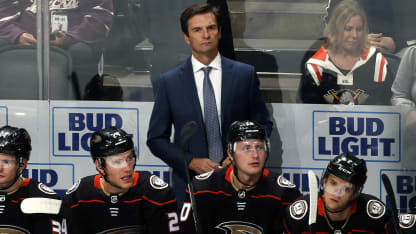
What did you think of the job Dallas Eakins did in his first season behind the Ducks bench?
I thought he was very organized and well prepared. I thought the communication was good early. It got off track a little bit. As I've said before, he had to get rid of some of the things that came from Edmonton. I think those are gone now. He was very hard on some young people in Edmonton and it kind of backfired on him. I'm not saying it's all his fault, by the way.
He took the foot off the gas a bit with them. He's going to be much more consistent and on point with everybody next year. He had to get a few things out of the way, and he did.
We were a decent hockey team a lot of nights. That's why I expect much more next year. We showed we could play the game. They have to get better on special teams. They're working on it. You can't watch certain teams' power plays. I'll use Boston [as an example]. That's a pretty damn good power play. We don't have those players, so we have to have a different sort of power play. You have to work with what you have. You can't recreate a Boston, Tampa Bay or Washington power play. We can't try to do that because we don't have those people at this point. We're getting some. We're starting to draft some of those high-skilled people. For now, we're going to have to do it a bit different. That's my message. We can get better on special teams. That's on coaching and the players. That's something they're working on.
Do you foresee any issues re-signing some of your restricted free agents?
There are always issues. We've talked to them all a little bit. Some we have the hammer and some they have a little bit of the hammer. The farther it goes and we get into November and about to play, there's not going to be a lot of money out there next year. I foresee the [salary] cap being fairly close to flat. It could be flat for a couple years. I don't know. The revenues are going to be tight. We've talked to them, but there's nothing to announce at this point. We know who they are. We know who has arbitration rights and who doesn't. Those types of things.

